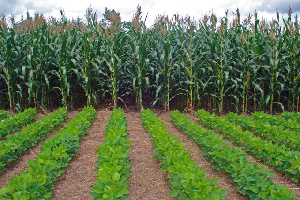Ghana will soon get a Consolidated National Conservation Agriculture manual that will review the myriad of existing Conservation Agriculture manuals and develop a standardized one to serve as a one-stop reference document for stakeholders.
Conservation Agriculture is a sustainable approach to agricultural production aimed at protecting soil from erosion and degradation, improve its quality and biodiversity, contribute to the preservation of natural resources, water, and air, whilst improving yields.
Conservation Agriculture is based on three core principles: minimum soil disturbance, maintenance of permanent soil cover and use of crop rotations with a diversity of crop species.
Dr Jasmin Marston, the European Union Resilience Against Climate Change (EU-REACH) Project Manager, disclosed this in Wa during a three-day training workshop for planning officers and management of Information Systems officers in the Upper West, North East, and Savannah Regions of the country.
Dr Marston noted further that they had also begun mapping existing resources and land uses in some 18 communities, which is being used to design community land use maps that will aid in the development of Community Action Plan guidelines.
She noted that the workshop was aimed at equipping participants with skills in generating geographic data (geo-data) using mobile applications for data collection, map making, and geo-data management whilst building linkages with the planning officers to exchange information, replicate methodology and to help solve technical problems.
The EU-REACH Project Manager noted that the training was the beginning of similar trainings to build the capacities of the Municipal District Planning and Coordinating Units (M/DPCUs), which would lead to the design of climate-smart development plans.
“The REACH project seeks to primarily address the negative impacts of climate change on communities in the North-West Zone”, she said.
Dr Marston noted that the project used a gender-sensitive approach in helping communities to adopt and sustain good agricultural practices and to assist the M/DPCUs in the development of environmentally sound Medium-Term Development Plans that contributed to the realization of Ghana’s International Commitment to the Paris Agreement on the reduction of carbon dioxide emissions.
REACH, which is part of the 2017 European Union Ghana Agriculture Project (EUGAP), started in January 2019 and will run until the end of 2024.
It is being implemented on behalf of the EU by the German Development Organization (GIZ)/Competitive Cashew Initiative (ComCashew) with additional funding from the German Government and with close partnership and oversight of the Ministry of Food and Agriculture.
Source: GNA
 Home Of Ghana News Ghana News, Entertainment And More
Home Of Ghana News Ghana News, Entertainment And More




